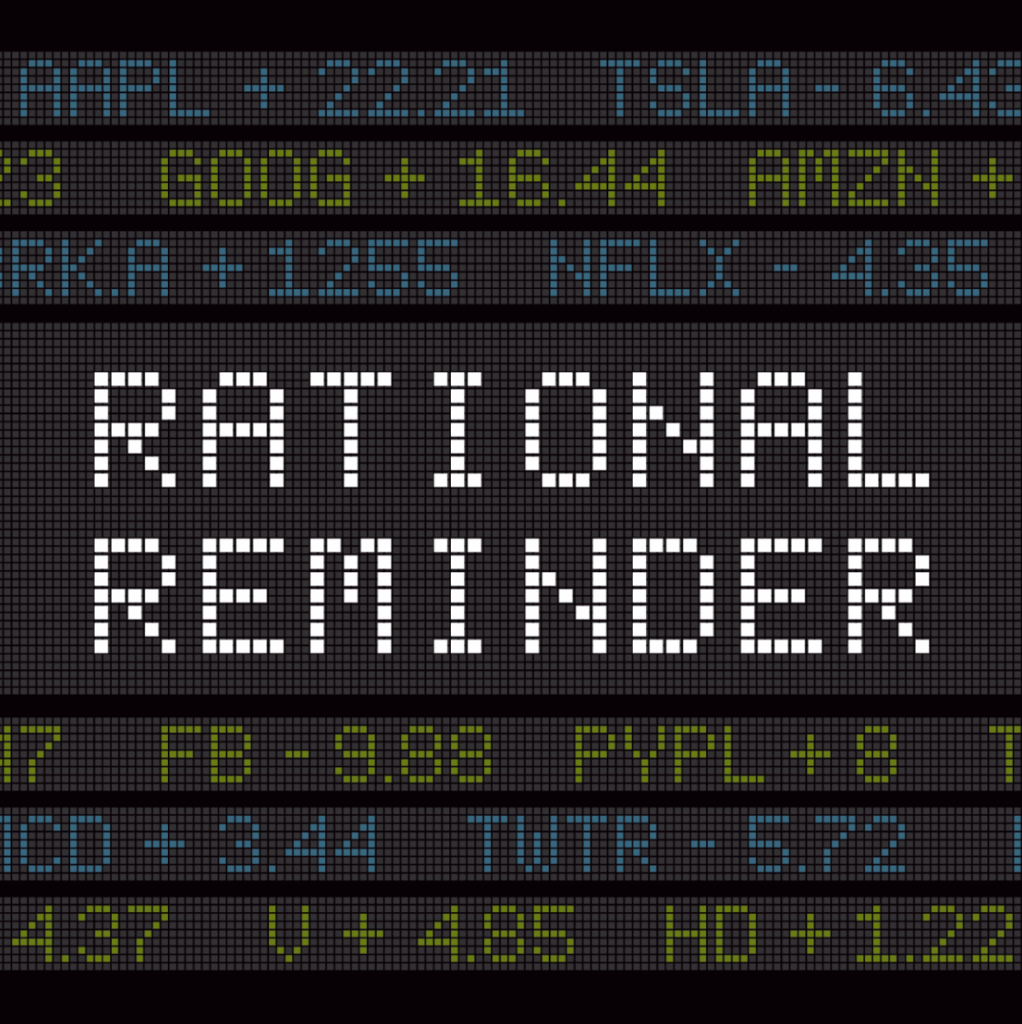Details Are Part of Our Difference
David Booth on How to Choose an Advisor
20 Years. 20 Lessons. Still Taking the Long View.
Making the Short List: Citywire Highlights Our Research-Driven Approach
The Tax Law Changed. Our Approach Hasn’t.
Tag: market volatility
Back to Basics: What Drives Long-Term Investing Success

If you’re traveling this Thanksgiving and want something both smart and calming to listen to, we have a great pick. Investing 101 – It’s a short, clear episode from the Rational Reminder podcast, which highlights the same evidence-based investing principles we believe in.
In the episode, hosts Ben Felix, Dan Bortolotti, and Ben Wilson revisit the research-backed ideas that support a disciplined investing experience: owning markets instead of trying to time them, staying globally diversified, keeping costs low, and maintaining focus amid market noise.
We’re sharing it because even the most experienced long-view investors benefit from revisiting these fundamentals, especially during a season that’s often busy and hectic, yet ultimately about gratitude and perspective.
Pop in your headphones, take a walk, or queue it up on your flight home, and share it with a friend. It’s 40 minutes well spent.
As this season of gathering kicks off, if someone you care about could benefit from our approach, give us a call or email us here.
Bubble, Bubble, Bubble… Pop?

My 18-month-old son’s favorite song right now has a catchy chorus that goes, “Bubble, bubble, bubble… POP!” and as with any toddler favorite, we sing it constantly, so it’s always stuck in my head. Lately, every time I open my WSJ app and see the word “bubble” splashed across a headline, the soundtrack kicks in automatically.
In the song, the bubbles always pop. So, should we be preparing for a big pop in markets, as the headlines suggest? Part of taking the long view is refusing to react to headlines. Our philosophy centers on tuning out the noise and anchoring decisions in evidence. But with all the AI “bubble” chatter, it’s worth taking a moment to examine this idea from a research-backed point of view, one that might surprise you, but ultimately help you rise above the noise.
What If Bubbles Don’t Exist?
Eugene Fama, Nobel laureate and architect of the Efficient Market Hypothesis (and a major influence on Hill’s investment philosophy), has a view that stops people in their tracks: He doesn’t believe in bubbles.
Not because he thinks markets are perfect…they aren’t. And not because prices never fall…we know that they do. He challenges the idea of bubbles because, as he puts it, you can’t scientifically prove that a price was ‘wrong’ in the moment.
Here’s what this means:
1. We only call something a bubble in hindsight.
When prices rise sharply, no one knows if it’s irrational because future growth could justify it. We only label it a “bubble” after a drop, which means we’re using new information to judge old prices.
2. A crash isn’t evidence of a bubble.
A sharp decline doesn’t mean earlier prices were foolish. It may simply reflect changing expectations, new information, or shifting economic conditions.
3. If something looks obviously overpriced, markets should correct it.
Nobel Prize winner, University of Chicago Professor, and Dimensional Director Eugene Fama argues that calling something a bubble implies that most investors were collectively irrational, something he’s deeply skeptical of.
Whether or not you fully agree with him, his perspective matters because it reminds us of something essential: the story of markets is driven more by narrative and emotion than data.
How this Connects to Your Plan
At Hill, we don’t spend time predicting bubbles. We don’t try to guess where the top is. We don’t build your plan around today’s headlines. Instead, we build portfolios (and relationships) around a different set of ideas:
- Evidence beats emotion.
- Your financial life shouldn’t be swayed by headlines.
- And you don’t need to predict what comes next.
So, Are We in a Bubble? The honest, evidence-based, answer is that no one knows. And we don’t need to. The goal isn’t to call the top. It’s to stay invested, stay disciplined, and stay focused on your long-term vision, the one we’re building together.
If you’d like to talk more about this, call us or email at askanadvisor@hillinvestmentgroup.com to set up a time.
Disclosure:
Hill Investment Group Partners, LLC (HIG) is an SEC-registered investment adviser. Registration does not imply a certain level of skill or training. The information in this publication is for educational and informational purposes only and does not constitute an offer to sell, or a solicitation of an offer to buy, any specific securities, investments, or investment strategies. Nothing contained herein should be construed as individualized investment, tax, or financial advice. Always consult with a qualified financial adviser and/or tax professional before implementing any strategy discussed.
Investments involve risk, including the possible loss of principal. Past performance is not indicative of future results. Investment return and principal value will fluctuate so that an investor’s shares, when redeemed, may be worth more or less than their original cost. Future returns may differ significantly from past returns due to market and economic conditions, among other factors.
Why We Trust the Market
 Before joining Hill Investment Group, I spent part of my career at Dimensional Fund Advisors (DFA)—a firm whose investment philosophy has helped shape our own. DFA, like Hill, was founded on a simple but powerful belief: markets work. That foundational idea continues to shape how I view the world and reinforces my deep confidence in evidence-based investing.
Before joining Hill Investment Group, I spent part of my career at Dimensional Fund Advisors (DFA)—a firm whose investment philosophy has helped shape our own. DFA, like Hill, was founded on a simple but powerful belief: markets work. That foundational idea continues to shape how I view the world and reinforces my deep confidence in evidence-based investing.
It’s easy to think of “the market” as a complex or distant system. But in reality, we all interact with markets more often than we realize. Whether you’re selling a used couch on Facebook Marketplace, comparing mortgage rates, or negotiating with a contractor, you’re participating in a market—exchanging value based on available information, competing options, and mutual agreement. This same principle drives how trillions of dollars are traded globally every day.
What makes markets remarkable is their ability to reflect the collective wisdom, emotion, and activity of millions of participants. In the short term, markets can be unpredictable, reacting to headlines, global conflicts, elections, or economic data. But over time, they’ve proven to reward long-term thinking, discipline, and optimism.
Of course, that doesn’t mean every moment in the market feels good. Volatility can be unnerving, especially when headlines are loud and uncertainty is high. But as our co-founder Matt Hall recently reminded us, “sometimes you need to duck.” In other words, short-term turbulence is a natural part of investing. It’s the price we pay for the opportunity to pursue long-term growth.
If you take a step back, the broader trend is compelling. As David Booth, co-founder of DFA, noted in a recent commentary, markets delivered strong returns in early 2024, even amid geopolitical tensions and economic uncertainty. That’s not magic. That’s markets doing what they do best: translating risk, effort, innovation, and information into forward motion. It’s a reflection of human ingenuity—entrepreneurs solving problems, companies adapting, and people continuing to build and invest in the future.
At Hill, we believe that investing is ultimately an act of faith in global progress. When you invest in a broadly diversified portfolio, you’re investing in the belief that economies will continue to grow, that people will continue to innovate, and that the world will continue to move forward—not just in the U.S., but around the globe.
Yes, markets do go down. Historically, downturns have occurred roughly every six or seven years. But staying invested—despite those temporary declines—has historically been a reliable way to participate in long-term growth. On the other hand, trying to time the market or avoid short-term dips can carry a different risk: missing out on the recoveries that often follow.
There’s also a hidden cost to stepping away from the market: the mental load. The stress of trying to guess when to get in or out, or constantly second-guessing your plan, can be draining. Many investors eventually come to see the value of having a trusted advisor, not just to manage investments, but to help them focus on what matters most in their lives.
If you’re reading this, you’ve likely already embraced that philosophy. You’ve chosen to Take the Long View with us. Our encouragement now is simple: lean into that mindset. Let the markets do their job, while you focus on yours—being present with your family, pursuing your passions, and building a life filled with meaning and intention.
That’s the real return—and the heart of why we Take the Long View.
Disclosures:
This content is for informational and educational purposes only and does not constitute personalized investment advice or a guarantee of future results. Hill Investment Group does not provide legal or tax advice. Please consult your legal or tax professional regarding your individual circumstances. References to third-party firms or individuals do not constitute endorsements or affiliations unless explicitly stated.

